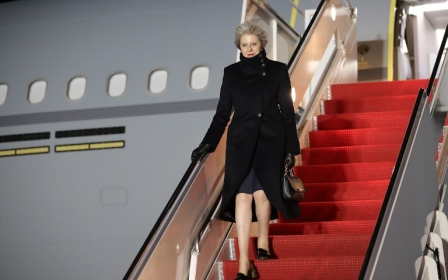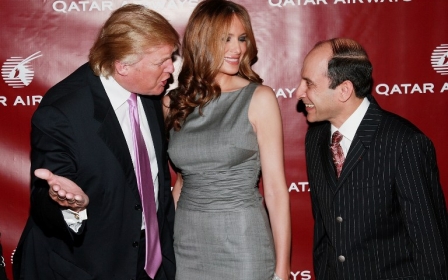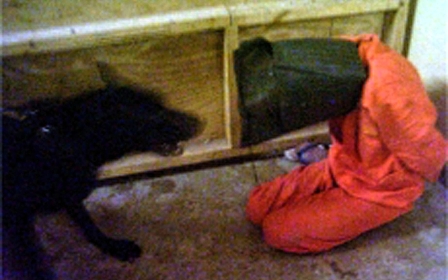Donald Trump, Theresa May discuss Brexit, Russia and torture
President Donald Trump lauded a "most special relationship" with Britain and threw his support behind Brexit on Friday, as he hosted British Prime Minister Theresa May for his debut on the diplomatic stage.
At a tense moment in trans-Atlantic relations, Trump tried to recast the "deep bond" as a meeting of ideological minds: two countries embracing populist policies and taking an uncompromising view of the national interest.
Trump pointed to Britain's exit from the European Union as a "wonderful thing" and said: "When it irons out, you're going to have your own identity, and you are going to have the people that you want in your country."
"You're going to be able to make free trade deals without having somebody watching you and what you are doing," he added.
May brushed aside deep-seated differences on issues from torture to Russia, and pursued a diplomatic charm offensive aimed at securing commitments on trade and mutual defense.
She conveyed an invitation from Queen Elizabeth II for Trump to come to Britain for a state visit later this year.
"When it irons out, you're going to have your own identity, and you are going to have the people that you want in your country."
-US President Donald Trump
The pair even briefly held hands as they walked down the West Wing colonnade.
Trump greeted May himself upon her arrival at the White House and then they went to the Oval Office, posing and shaking hands in front of a bust of Winston Churchill.
Trans-Atlantic relations have been rocked by Trump's election and his willingness to rethink NATO, the UN and other foundation blocks of the Western world order.
With Trump largely silent on these issues during a joint press conference, May cited what had been said in private.
"We've reaffirmed our unshakeable commitment to this alliance," she said. "Mr President, I think you confirmed that you were 100 percent behind NATO."
Much of Britain's military power, including its nuclear deterrent, depends on US equipment and systems.
European diplomats worry about the influence of top Trump advisor Steve Bannon, who has made common cause with right-wing nationalists and populists in France, Britain and beyond.
Many in European capitals are conscious of the continent's previous embraces of nationalism - the Balkan wars and the horrors of World War II, which left millions dead.
Post-Brexit trade
Trump's break with decades of US support for multilateral trade deals and his preference for bilateral accords did offer May one opening as she seeks to navigate Britain's complex exit from the European Union.
Faced with the exit from the European single market, the British government is scrambling to secure bilateral deals around the world.
Trump nevertheless offered no firm commitment to negotiate a free trade agreement, but did say: "We look forward to working closely with you as we strengthen our mutual ties and commerce, business and foreign affairs."
That could pose problems for May at home. Her decision to meet Trump just one week after his inauguration has caused considerable controversy.
Trump has been condemned by European politicians of all stripes for his comments about women, Muslims and the use of torture.
May was not helped on Thursday when the White House misspelled her name multiple times when announcing her visit.
'I think we're going to get along'
The reserved daughter of a vicar had promised to be "frank" in her dealings with the unpredictable billionaire. The pair laughed off questions about their personal compatibility.
Trump joked that he was "not as brash as you might think" and, turning to May, said: "I think we're going to get along very well."
Throughout the long US election campaign, Trump showed little interest in foreign policy except through the prism of his image at home and a pledge to put "America First".
May had received a rapturous welcome from Republican lawmakers gathering in Philadelphia on Thursday with a speech urging them to "beware" of Russia, and warning US allies to "step up" and play a greater role in global security.
With Trump expected to speak on Saturday with Russian President Vladimir Putin for the first time since taking power a week ago, speculation has been rife that Trump is close to lifting sanctions imposed on Russia by then-President Barack Obama over Moscow's annexation of Ukraine's Crimea Peninsula in 2014.
Such a move would likely cause consternation among European allies as well as many in the US Congress who are also troubled by Russia's intervention in the Syrian civil war and by the finding by US intelligence agencies that Moscow meddled in the US election campaign.
"As far as the sanctions, (it is) very early to be talking about that," Trump said while insisting he wanted to follow through on his campaign pledge to pursue better relations with Russia.
But at a joint news conference with Trump, May made clear Britain wants to continue sanctions until Putin carries out the requirements from a ceasefire agreement arranged in Minsk, Belarus in 2014. This view is shared European allies who fear Putin could become more expansionist if he feels Trump will not intervene.
"We believe the sanctions should continue until we see the Minsk agreement fully implemented. And we've been continuing to argue that inside the European Union," May said.
At the news conference, Trump also addressed his controversial comments on torture. He said he would defer to Defense Secretary James Mattis regarding the use of waterboarding as an intelligence-gathering tool.
Trump said Mattis does not "necessarily believe" in waterboarding and other enhanced interrogation techniques, which many lawmakers and other rights groups denounce as torture.
"I don't necessarily agree, but I would tell you that he will override because I'm giving him that power," Trump told said.
Middle East Eye propose une couverture et une analyse indépendantes et incomparables du Moyen-Orient, de l’Afrique du Nord et d’autres régions du monde. Pour en savoir plus sur la reprise de ce contenu et les frais qui s’appliquent, veuillez remplir ce formulaire [en anglais]. Pour en savoir plus sur MEE, cliquez ici [en anglais].




